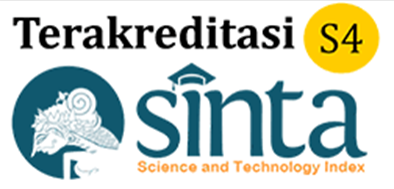The Shocking Truth: Why Renewable Energy in Maluriwu Village is Falling to Meet Public Needs
Abstract
The challenges of renewable energy at the village level leave problems that are not yet optimal in practice to facilitate public needs, especially in Maluriwu Village, Sikka Regency, East Nusa Tenggara. Although the provision of renewable energy supports the provision of public services, the facts are not significant. Furthermore, the method adopted is descriptive qualitative to understand the problem of renewable energy as a means of providing public needs at the village level. Data were obtained through interviews by identifying participants competent in providing information related to the research theme. The findings reveal that there is a gap between community participation and community expectations when planning programs. There is a lack of community representation in the discussion forums that were initiated, where there are concerns and dissatisfaction with the program promised by the government. In general, these findings require special attention from the government to village residents to provide public services through appropriate policies.
References
Abouhawwash, M., & Jameel, M. (2023). Evaluation factors of solar power plants to reduce cost under neutrosophic multi-criteria decision making model. Sustainable Machine Intelligence Journal, 2, 1.
Antlöv, H., Wetterberg, A., & Dharmawan, L. (2016). Village governance, community life, and the 2014 village law in Indonesia. Bulletin of Indonesian Economic Studies, 52(2), 161–183.
Blum, J. (1971). The European Village as Community: Origins and Functions. Agricultural History, 45(3), 157–178. http://www.jstor.org/stable/3741976
Cole, R. (2023). Inter-rater reliability methods in qualitative case study research. Sociological Methods & Research, 00491241231156971.
Donovan, G. (2023, January 21). Listrik PLTS Milik PLN di Palue Belum Nyala 24 Jam, Warga Bilang Belum Maskimal. Tribun Flores. https://flores.tribunnews.com/2023/01/21/listrik-plts-milik-pln-di-palue-belum-nyala-24-jam-warga-bilang-belum-maskimal
Hartwig, T., & Nguyen, T. T. (2023). Local infrastructure, rural households’ resilience capacity and poverty: evidence from panel data for Southeast Asia. Journal of Economics and Development, 25(1), 2–21.
Junaedi, J. (2023). Implementation Of Village Governance Based On Principles Of Good Governance Of Public Service In Indonesia. International Journal of Business, Law, and Education, 4(1), 249–266.
Karyana, A. (2021). Pengantar Manajemen Publik. Depok: Khalifah Mediatama.
Madjid, A., Rahmawan, T. I., & Damayanti, G. (2022). Village Regulation as A Participation-Based Development Instrument In Indonesia. International Journal of Social Science Research and Review, 5(1), 34–44.
Mazzone, A., Fulkaxò Cruz, D. K., Tumwebaze, S., Ushigua, M., Trotter, P. A., Carvajal, A. E., Schaeffer, R., & Khosla, R. (2023). Indigenous cosmologies of energy for a sustainable energy future. Nature Energy, 8(1), 19–29.
Meeks, R. C., Omuraliev, A., Isaev, R., & Wang, Z. (2023). Impacts of electricity quality improvements: Experimental evidence on infrastructure investments. Journal of Environmental Economics and Management, 120, 102838.
Naku, D. W. C., Kihila, J., & Mwageni, E. (2021). Community participation methods and their influence on effective community participation in development programs in Tanzania. International Journal of Social Science Research and Review, 4(4), 104–126.
Pangaribowo, E. H., & Iskandar, D. D. (2023). Exploring socio-economic determinants of energy choices for cooking: the case of eastern Indonesian households. Environment, Development and Sustainability, 25(7), 7135–7148.
Rijal, S. (2023). The importance of community involvement in public management planning and decision-making processes. Journal of Contemporary Administration and Management (ADMAN), 1(2), 84–92.
Roesler, T. (2019). Community resources for energy transition: Implementing bioenergy villages in Germany. Area, 51(2), 268–276.
Sabet, N. S., & Khaksar, S. (2024). The performance of local government, social capital and participation of villagers in sustainable rural development. The Social Science Journal, 61(1), 1–29.
Sabir, M., & Torre, A. (2023). Land-Use Conflicts and Social Capital: the question of infrastructure projects in rural development. The Annals of Regional Science, 70(3), 757–777.
Shani, R., Reingewertz, Y., & Vigoda-Gadot, E. (2023). Regional governments in the rural space: the effectiveness of dual-tier regional councils. Regional Studies, 57(9), 1816–1831.
Wallwey, C., & Kajfez, R. L. (2023). Quantitative research artifacts as qualitative data collection techniques in a mixed methods research study. Methods in Psychology, 8, 100115.
Zulmasyhur, Z., & Avianto, B. N. (2019). Group Dynamics and Cronyism in Village Development Planning Participation. International Journal for Educational and Vocational Studies, 1(7). https://doi.org/10.29103/ijevs.v1i7.1801
Copyright (c) 2024 Jurnal Manajemen dan Ilmu Administrasi Publik (JMIAP)

This work is licensed under a Creative Commons Attribution 4.0 International License.













